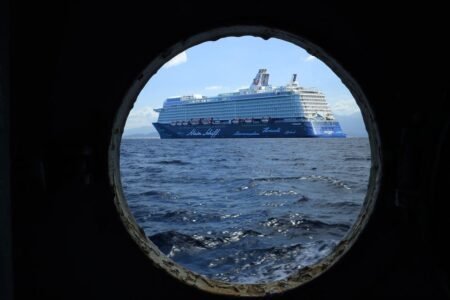The European Parliament and the EU Council reached agreement on 18 December on the creation of the world’s first-ever ‘green list’ – a classification system for sustainable economic activities, or taxonomy.
Advertisement
What has been agreed?
The political agreement between the European Parliament and the Council on the creation of the world’s first-ever “green list” classification system for sustainable economic activities, or taxonomy, has been endorsed today. The Taxonomy Regulation provides for a general framework that will allow for the progressive development of an EU-wide classification system for environmentally sustainable economic activities.
Today’s Regulation does not yet create an exhaustive list of environmentally sustainable economic activities, but instead defines a general framework for what economic activities qualify as “environmentally sustainable”. Notably, it sets out the following:
Six environmental objectives:
- Climate Change Mitigation
- Climate Change Adaptation
- Sustainable Use and Protection of Water and Marine Resources
- Transition to a Circular Economy
- Pollution Prevention and Control
- Protection and Restoration of Biodiversity and Ecosystems
Four requirements that economic activities need to comply with in order to qualify:
- They provide a substantial contribution to at least one of the six environmental objectives above;
- “No significant harm” is caused to any of the other environmental objectives;
- Compliance with robust and science-based technical screening criteria; and,
- Compliance with minimum social and governance safeguards
This framework will be subject to further technical assessments.
Why do we need to have this “green list” at EU-level?
An EU-wide classification system will mean that we have a uniform and harmonised way of determining what economic activities can be regarded as sustainable. This is essential in order for the EU to become the first climate-neutral continent by 2050, as well as to urgently fight biodiversity loss and other environmental challenges.
Today’s political agreement will:
- Give the EU, Member States, market actors and consumers a common understanding of what economic activities can unambiguously be considered as environmentally sustainable;
- Protect private investors and consumers by avoiding “green-washing” (i.e. preventing organisations from saying that their products, aims or policies are environmentally-friendly and resilient when they are in fact not);
- Facilitate cross-border investment and avoid market fragmentation by providing a single system of classification; and
- Provide a solid basis to help reorient capital flows towards sustainable investment, manage financial risks stemming from climate change, environmental degradation and social issues, and foster transparency and establishing a long-term view in financial and economic activity, including standards, labels, and any future changes to prudential rules.
Who will have to use this classification system and how?
Once it is fully developed, it will have to be used by:
- Member States and the European Union when they say that public measures, standards or labels concerning financial products or corporate bonds offered by financial market participants or issuers are environmentally sustainable.
- Financial market participants who offer financial products: Financial market participants, as defined in the Disclosure Regulation,[1] will be required to disclose information on how and to what extent the investments that underlie their financial product support economic activities that meet all the criteria for environmental sustainability under the Taxonomy Regulation. For those products that do not invest in taxonomy-compliant activities, a statement will need to be made by the financial market participant, saying that the relevant investments do not take into account the EU Taxonomy Regulation.
- Financial and non-financial companies that fall under the scope of the Non-Financial Reporting Directive (NFRD) would have to disclose information on how and to what extent the undertaking’s activities are associated with environmentally sustainable economic activities. This refers to large public-interest companies with more than 500 employees, covering approximately 6,000 large companies and groups across the EU. In line with the guidelines accompanying the NFRD,[2] the relevant Key Performance Indicators (turnover, expenditure, and investment) are already provided in the level 1 Regulation for non-financial undertakings, while the Key Performance Indicators for financial undertakings will be further specified in a delegated act, to be adopted in 2021.
Member States, the European Union, and the relevant market actors will have to start complying with these requirements from December 2021.
This classification system can also be used on a voluntary basis by any other market actors, other than those captured by the Non-Financial Reporting Directive. Above all, this system should help companies to raise finance for sustainable activities, by encouraging them to publish the percentage of their turnover or investments that is in line with the “green list” of environmentally sustainable activities. For example, companies that are not required to publish a non-financial statement, like SMEs, may decide to publish information on their website regarding their alignment with the Taxonomy Regulation. This could help raise finance for the relevant investments.
This system will not necessarily replace companies’ existing sustainability policies. Rather, it will make it easier for companies with sustainability policies to raise funding for their projects, if they meet the criteria set out in the taxonomy.
When and how will the taxonomy be fully developed?
This system will be developed through delegated acts and will be published in two batches: one on the climate-related objectives and one on the other four environmental objectives mentioned above. This means that Member States and the European Union, as well as on financial market participants and on undertakings will only start applying these rules when the relevant delegated acts have been public for one year. This will ensure that market actors have had sufficient time to familiarise themselves with the criteria.
Specifically:
- The delegated act on the first two climate-related objectives (i.e. “Climate Change Mitigation” and “Climate Change Adaptation”) should be adopted by the Commission by 31 December 2020 and will therefore start applying as of 31 December 2021.
- The delegated act on the remaining four environmental objectives should be adopted by the Commission by 31 December 2021 and will therefore start applying as of 31 December 2022.
To assist the Commission in the development of these delegated acts, a Platform for Sustainable Finance gathering various experts and stakeholders will be created. It will be tasked with providing advice on the technical screening criteria and a number of other relevant topics. The Platform will be comprised of all relevant stakeholders, including:
- Public institutions such as the European Environmental Agency, the European Supervisory Authorities, the European Investment Bank, and the European Union Agency for Fundamental Rights.
- Private stakeholders, including financial market actors and representatives of the relevant business sectors and industries.
- Scientific experts in the relevant fields, as well as those representing civil society, particularly in the field of Environment, Social and Governance (ESG) and labour issues, and academia.
The Commission will also be advised by a Member State Expert Group to ensure the suitability and usability of the criteria. This process will facilitate the work of the Commission by providing advice on technical screening criteria that is scientifically-robust and based on extensive consultation of all important stakeholders, including Member State experts.
What types of activities will be eligible for this classification system?
Today’s political agreement recognises three different types of environmentally sustainable economic activities:
- Activities that in and of themselves contribute substantially to one of the six environmental objectives
- Transition activities: These are activities for which there are no technologically and economically feasible low-carbon alternatives, but that support the transition to a climate-neutral economy in a manner that is consistent with a pathway to limit the temperature increase to 1.5 degrees Celsius above pre-industrial levels, for example by phasing out greenhouse gas emissions
- Enabling activities: activities that enable other activities to make a substantial contribution to one or more of the objectives, and where that activity:
o does not lead to a lock-in in assets that undermine long-term environmental goals, considering the economic lifetime of those assets;
o has a substantial positive environmental impact on the basis of lifecycle considerations.
The deal explicitly excludes power generation activities from solid fossil fuels from being eligible.
What about nuclear energy?
Today’s political agreement neither explicitly excludes nor includes nuclear energy in the list of eligible environmentally sustainable economic activities. The importance of ‘climate-neutral energy’ for the transition has been explicitly recognised in a recital, while the principle of assessing ‘the feasibility of all existing technologies’ has been introduced into an article dealing with transition activities. The decision to include or exclude nuclear energy has therefore been left to the detailed rules based on technical expert input, subject to ‘do no significant harm criteria’, in particular with regards to the disposal of waste, as well as specific references to life-cycle considerations.
What about gas?
Today’s political agreement neither includes nor excludes gas from the EU taxonomy. Instead, this will be subject to a technical assessment for the development of the delegated legislation.
How are “transition activities” defined?
Some economic activities, under certain conditions, can be considered environmentally sustainable under the Taxonomy, if they fulfil a number of conditions:
- Their greenhouse gas emission levels correspond to the best performance in the sector or industry.
- They must not hamper the development and deployment of low-carbon alternatives.
- They must not lead to a lock-in in carbon-intensive assets considering the economic lifetime of those assets.
- The technical screening criteria for these activities will need to ensure that these transition activities have a credible path towards climate-neutrality. To ensure this, technical screening criteria should be adjusted accordingly at regular intervals.
The concept of “transition activities” is applied with regards to the climate change mitigation objective. Nuclear energy and natural gas are frequently debated economic activities in this particular context.
As part of the political compromise reached, neither natural gas, nor nuclear energy are explicitly included or excluded from the list and the importance of assessing the feasibility of ‘all existing technologies’ is explicitly mentioned when it comes to transition activities. The decision on inclusion or exclusion will be carried out by the Commission in the detailed rules on the basis of technical input from a multi-stakeholder platform, as is the case with all economic activities, with the exception of power generation activities using solid fossil fuels. All technologies will be assessed based on life cycle considerations, as well as in accordance with the additional requirements that apply to transition activities, and appropriate technical screening criteria will be developed including to avoid ‘significant harm’, including with regards to the disposal of waste.
What can I do if my economic activity is not part of this classification system?
This system is a tool that is intended to support sustainable, climate-resilient and green investment, and will grow over time.
Any market actor or investor is free to explain how their activities relate to the Taxonomy, even if they are not currently on the list. This includes describing how they believe their activities are already low-carbon, contribute to the transition or enable other activities to meet their thresholds. In addition, investors and market actors are invited to inform the Platform on Sustainable Finance, in order to carry out the appropriate assessment of economic activities not yet covered by the Taxonomy.
How does the Taxonomy Regulation relate to the work of the Technical Expert Group (TEG)?
TEG recommendations are the first input to the Commission’s work on developing the future delegated acts. In June 2019, the TEG provided preliminary recommendations for a first set of economic activities with criteria that should deliver a substantial contribution to climate change mitigation and adaptation, while not significantly harming any of the other environmental objectives.The TEG will finalise these recommendations by February 2020. The concrete list of activities which will qualify as ‘environmentally sustainable’ will have to be identified step-by-step by the Commission when drawing on the advice of the TEG.
[1] Regulation 2019/2088 on sustainability-related disclosures in the financial services sector
Source: European Commission







